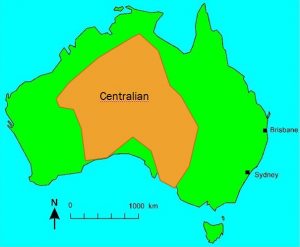
The original sediment of the Heavitree Quartzite was deposited from highly energetic, fast flowing water that surged across a huge area of Australia. This was early in the global Flood (but not right at the beginning). As the waters of Noah’s Flood were flowing across the earth they were also rising and inundating it. They deposited their dense load of sediment, rapidly filling the sedimentary basin maintaining a relatively shallow water level above the top of the sediment. That is why the ripple marks formed.
However the water level kept rising and the sediment kept coming until deposits kilometres deep had been laid down in what is known as the Amadeus Basin which begins just south of Alice. Not only is the thick, geographically extensive quartzose sandstone of the Heavitree Quartzite prominent at the base of the Amadeus Basin, but the same type of sandstone units are present in neighbouring sedimentary basins through Central Australia of a corresponding geologic ‘age’. This indicates that the geographical extent of the watery catastrophe reached far beyond the Amadeus Basin.

This enormity of this sedimentation on the Australian continent provides a glimpse of the cataclysmic extent of Noah’s Flood and its unimaginable magnitude.
Reference
Lindsay, J.F., Heavitree Quartzite, a Neoproterozoic (Ca 800–760 Ma), high-energy, tidally influenced, ramp association, Amadeus Basin, central Australia, Australian Journal Earth Sciences 46:127–139, 1999.